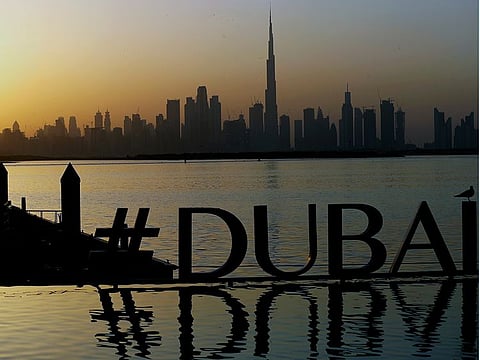Dubai's hotel rates need to get back to Dh500 a day to see profits return
Slipping below Dh500 puts them at a heavy risk in coming weeks

Dubai: Dubai’s hotels will need to get their room rates back to a steady Dh500 and more if they are to make a profit this year… or at least, reduce losses.
It was in January last year that the UAE’s hotel sector saw its highest average daily rate (ADR), at Dh590.14, while the lowest point came in April, when average industry rates crashed to Dh263.71. And in November, the market regained some of that back to close at Dh371.84, according to the hospitality consultancy STR.
For December, industry sources say the average could have pushed past Dh400 a day, or even crossed Dh450 as local hotels experienced a major breakthrough in winning over guests.
But fresh lockdowns and travel restrictions in countries that provide the UAE with a majority of its visitors put a spoke on recovery chances.
Workation drive
In the last six months of 2020, UAE hotels managed to squeeze out as much as they could from staycations, getting residents to drive down to a hotel or resort to spend holidays or get away from home for the weekend. Now, these hotels, especially properties popular with business guests, are building up their 'workation' chances. They are offering competitive rates - and these have become even more so now - to stay and work from the hotels rather than choose separate apartment or office addresses elsewhere. According to hotel industry grapevine, many businesses flew in key personnel during recent weeks and asked them to operate from a hotel address.
Formula is simple…
But outcomes can prove uncertain. “If a hotel has 300 rooms, but out of that only 80 are occupied, the property will lose money,” said Erwin Jager, CEO of Barrows Hotel Enterprises, which provides consultancy to hotels or resorts operating in the UAE and the Gulf. “However, if the hotel ups rates to protect revenue, it risks losing new customers.”
Trying to come up with a balance that protects against falling into steep losses is what hotels and operators are working on. Their hope was that the November and December recovery would sustain itself through the first three or four months, by which time business-related travel would have recovered. That was the thinking… now, it will need revisions.
Rate cards
Some of UAE’s top hotel chains such as Kempinski, Hyatt and Sofitel are charging in the range of Dh300 to Dh700. The Jumeirah Beach Hotel will cost about Dh1,300 for a night, while super-luxury Burj Al Arab and Four Seasons wee advertising end-of-year rates of Dh5,000.
“Jumeirah’s doing great, so is the Versace Hotel - you see a lot of UAE nationals going there for just staying for a weekend, or having a nice evening,” said Jager.
The global hotel chains have alternative channels to keep their rooms full. Through membership programmes - Hilton Honors or Jumeirah One – operators are able to attract guests with special offers.
Many struggle
But three- and four-star hotels operated by independent operators or local business houses - which used to have high occupancy rates at this time of the year - are struggling. These operators, who don’t have the deep pockets of European hospitality majors, are surviving on a day-to-day basis amid a cash crunch.
“It’s really hard to keep operations going when occupancy rates fall by 30-40 per cent,” said Jager. And when rates have dropped to below Dh200, as is the case at three- and five-star properties, the risks become magnified.
If a hotel has 300 rooms, but out of that only 80 are occupied, it will lose money

Vaccine led recovery
The global vaccination programme and the public health response in the UAE is what the hotel industry will look to for a future turnaround. And then there’s the Expo…
But much will depend on increasing “room rates a little bit,” said Jager. That, however, could still be some distance away.
Sign up for the Daily Briefing
Get the latest news and updates straight to your inbox







